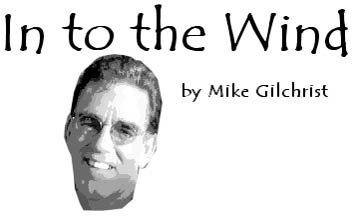Our moral compass

If it weren’t for certain ethics and a moral sense, the world would descend into chaos. If there were no laws, and no organized religion to imbue certain moral qualities, society would not be civil and the law of the jungle would prevail.
From an early age, those with responsible parents are taught the difference between right and wrong. It is up to us to create certain standards, a moral sense, and develop a conscience. We encounter branches along the path of life where this moral compass is challenged. I like to believe these pivotal junctures are a test of our integrity. Some fail miserably, some always do the right thing, while most of us have selective morality.
I am of the belief, other than saintly people, we all have selective morality. We have a tendency to pigeonhole our indiscretions into acceptable and non acceptable compartments. Those possessing a working inner monitor would feel converting anything tangible from one person to another morally wrong. It doesn’t matter if that tangible thing is a candy bar, a chicken, her eggs, or a bicycle. To convert someone else’s property to your own is wrong.
On the other hand, otherwise moral people will fudge speed limits in order to get there faster. Others will let a miss-scan at a large retail outlet fly, but not at a small mom and pop store. If the Wal-Mart price scanner says your $99.97 paint sprayer is $8.47, will you correct the clerk? What if the same thing happens at the local hardware store? I’ve heard people rationalize that the since it’s a big company, it’s alright. Is it?
I was reading this story where a fellow was arrested for “using” an open Internet connection outside a coffee house. He was arrested in the parking lot, in his car, while his laptop computer was connected to their Internet connection.
Casually using a broadband connection to check email when you are “in a spot” and need to communicate, while technically wrong could be put into one of those “selective morality” pigeon holes. I have done just that in my travels. Other technically inclined, computer toting people occasionally do the same thing. Now that same person might not connect habitually to an open access point down the hall from their office instead of buying their own bandwidth. I would not.
There is a difference between casual selective morality, and habitual selective morality. The fellow crossed the line when he arrived every day to “borrow” the bandwidth instead of making his own arrangements. His parking and activities also added to the uneasiness of the locals in the neighborhood. Here was this nerdy looking individual who showed up every morning in the same spot and never left his car. Keen observers saw he had a computer on his lap. Just what was this fellow doing? I think law enforcement made the right call in this case. I don’t think however if you are staying in a strange city a couple days and just happen to find an open access point and use it to quickly download mail qualifies you as a criminal. Ha, selective morality, right?
Some people use selective morality to justify simple indiscretions. Our vernacular is rife with descriptions of these indiscretions. The little white lie is one such instance of selective morality. “Does this tie look good with this jacket,” a man may ask? “It looks good on you,” will probably be the answer even if you really think the pattern clashes with the jacket, or the tie looks like someone spilled scrambled eggs on it.
Some leaders in corporate America can justify stealing from stockholders by back-dating stock options, or cooking the books.
Some people will take a grape at the grocery store to sample. If they do it to determine if they are sweet enough before they buy, it might fall into that category of acceptable selective morality. If someone habitually takes a handful of grapes when they pass through the produce section, they have crossed the line.
There are other people who can morally justify converting property to their own use. They think nothing of taking towels from a hotel, silver service from a restaurant, or blankets from the airline during a flight. After all, it’s a large corporation and they won’t miss it, right?
If everybody in or society suddenly decided these moral slips were acceptable, I maintain society would begin to collapse. I think the line that should not be crossed is the conversion of tangible items from someone else’s possession to our own, no matter how small or incidental; a pen from the bank, a teaspoon from the restaurant, a handful of condiment packets from a fast food restaurant, all fall into that category. After all, you wouldn’t think of stealing a car would you? If one doesn’t have long to think about it when temptation arises, then a consistent moral ethic will guide you. Where do you draw the line?
By now you know I have selective morality. I sometimes fudge the speed limit a bit. I wouldn’t take the candy bar. I wouldn’t take too much from a bank teller, I wouldn’t let the Wal-Mart miss-scan slide, but would probably “borrow” Internet bandwidth if I was some place where I needed to check my email, and somebody had an open access point. And if I pass your desk and you have little individually wrapped pieces of candy in a bowl, I may just take one, or two.
How about you?
Until next time–
You can read past columns by visiting tamatoledonews.com and clicking on the “Local Columns” button at the bottom of the page.
In to the Wind and this column are copyright 2005 – 2012 Mike Gilchrist. Readers, feel free to contact me at mike@aweiowa.com via email, or write to me at P.O. Box 255, Toledo, IA 52342






